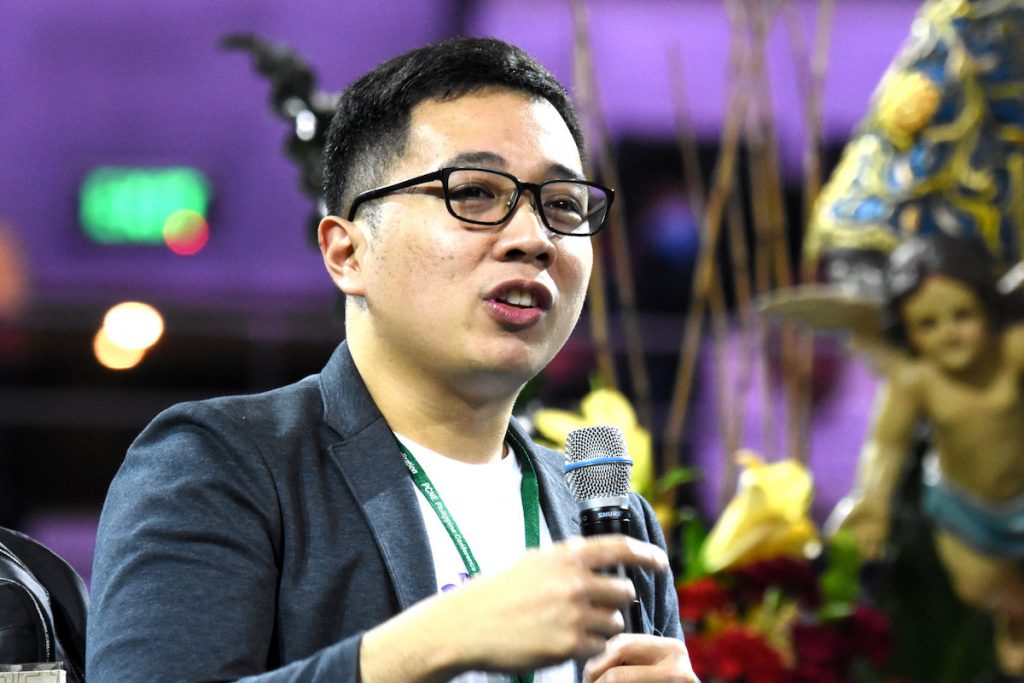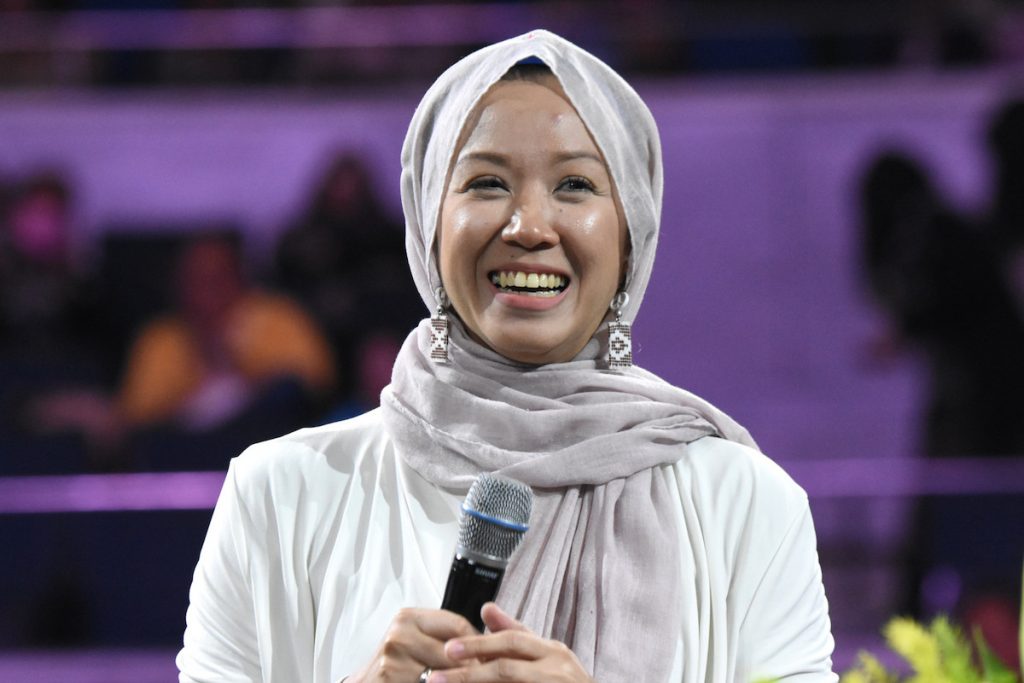Kurt Chester Damasco was going through his own journey of faith in college when he and a friend thought of putting up a merchandise “that spreads messages of faith.”
What seemed to be just a step for his own spiritual realization became a brand known as the “Worship Generation.”
The young man justified that “faith is something that can be very relatable, something that is and can be a part of our day to day lives.”
“If you believe in it, you can share it to people without being too intrusive,” said Kurt, explaining a business that is not quite popular among his age group.
Kurt would sell shirts, mugs, wrist ballers, and even umbrellas with quotes from the Bible printed on it “to promote expression of worship as a lifestyle.”
“Imagine, you are just walking around the mall, wearing a shirt, and you are already proclaiming a good message,” he said.

The idea started when he was invited to attend an interfaith Bible study group when he was still in the university.
“I was initially just there for the home-cooked meals,” he said in jest. But he admitted that he was attracted by the community, “the fellowship.”
Advocacy born out of conflict
Before she became a peace advocate, Bai Rohaniza “Honey” Sumnad-Usman, went through discrimination and “wars.”
A child of a Christian mother and a Muslim father, Honey grew up respecting other faiths and beliefs.
Her father belongs to a family of freedom fighters in the southern Philippines. She learned of the stories of struggles of Filipino Muslims at a young age.
She was seven years old and was living in the Kingdom of Saudi Arabia when the Gulf War erupted.
“My mother would tell me not to be afraid,” recalled Honey. “It was difficult … You would never know if you’ll come out alive or not,” she said.
The experience led her to her advocacy for children in conflict areas. “I believe that peace is possible even in areas that seem to be hopeless,” she said.
Back in the Philippines, Honey enrolled at the Assumption College to learn about her mother’s religion.

In school, she learned that the love for one’s neighbor is a teaching common to all faiths. “In a society that is full of hatred and negativity, it’s something beautiful to share,” she said.
Honey focused on religion and the development of human values in her studies. She learned that prejudices and biases are caused by the “lack of knowledge that we have about each other.”
After her studies, she initiated the “Teach Peace, Build Peace” movement in the country “to make every Filipino child and youth a peace hero.”
“We impart a culture of peace, of dialogue among the younger generations,” she explained.
Love rules
Celebrity couple Mariel Rodriguez, a Catholic, and Robin Padilla, a Muslim, said there is nothing difficult in a mixed marriage as long as there is dialogue.
“We believe that God is love and He will never be an author of confusion,” said Padilla, adding that every religion has its unique strength.
For Mariel, difference in religion is “never a problem” in at home.
“He would remind me to abstain from posting too much on social media during Holy Week and I would also join him in fasting during Ramadan,” she said.
The couple also stressed the importance of educating oneself about one’s faith.

Padilla joined his wife in a trip to the Vatican “to know more about Catholicism” while Mariel went to Singapore with her husband to learn about Islam.
“Our love should never complicate our relationship with God and with our neighbors,” said the movie actor.
“Religion should bridge us together and make us understand each other better,” he added.
Interfaith dialogue
Kurt, Honey, Mariel, and Robin shared their stories during an interfaith dialogue, which was led by Cardinal Luis Antonio Tagle before he left for the Vatican early this month.
In his message, the cardinal reminded participants of the Philippine Conference on New Evangelization that “everyone has a gift.”
“Your gift is the response to the needs of the others,” he said, adding that the key step in the journey of dialogue is a “personal encounter” with others.
Cardinal Tagle said that by meeting one’s neighbors “we hopefully will learn the path of humility, admitting our prejudice, and even the injustice that we have committed.”
“Let us be converted to the truth. From humility and repentance, hopefully, I will be open to the others who are God’s creatures too,” he added.
The Catholic Bishops’ Conference of the Philippines has declared 2020 as the Year of Ecumenism, Inter-religious Dialogue and Indigenous Peoples.
The country’s church leaders said the goal of the observance is to celebrate “human fraternity by promoting the culture of dialogue as a path to peace.”






